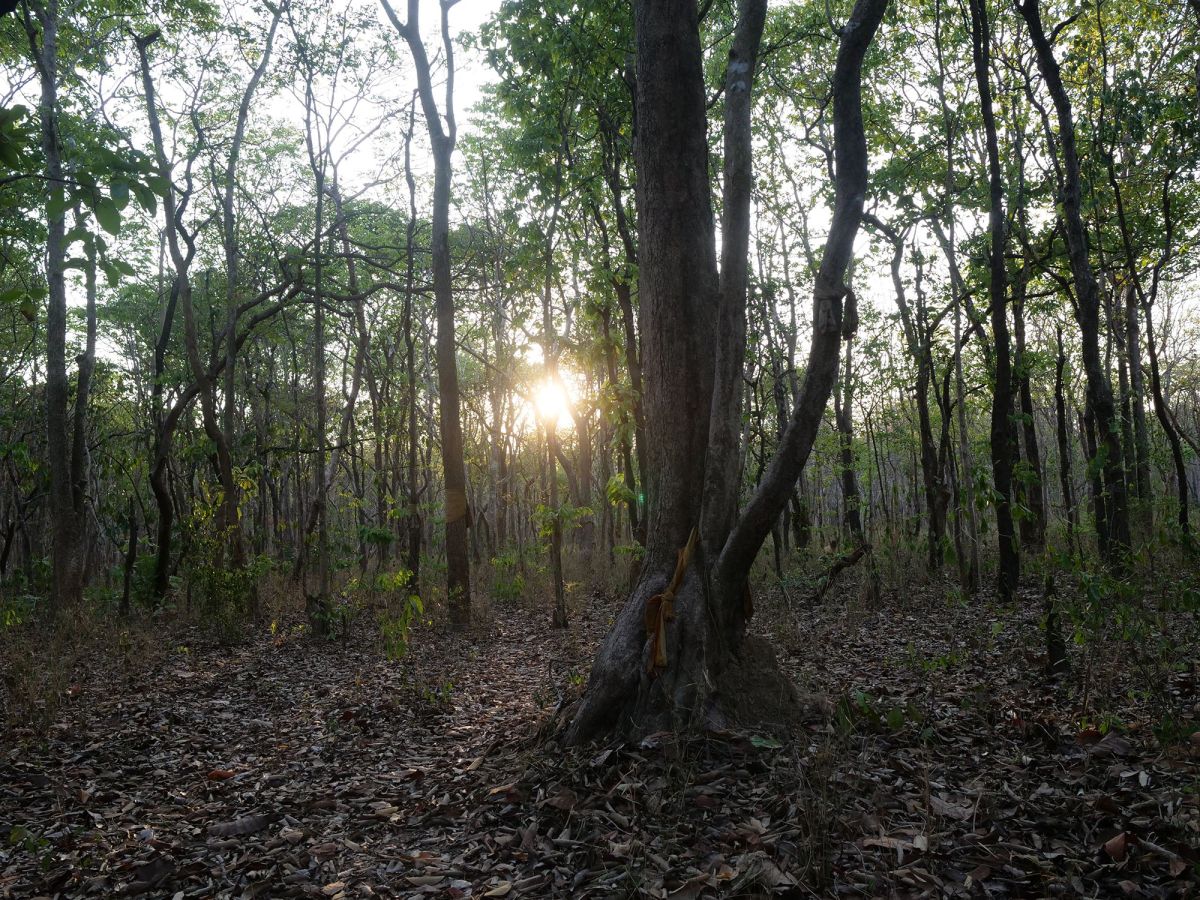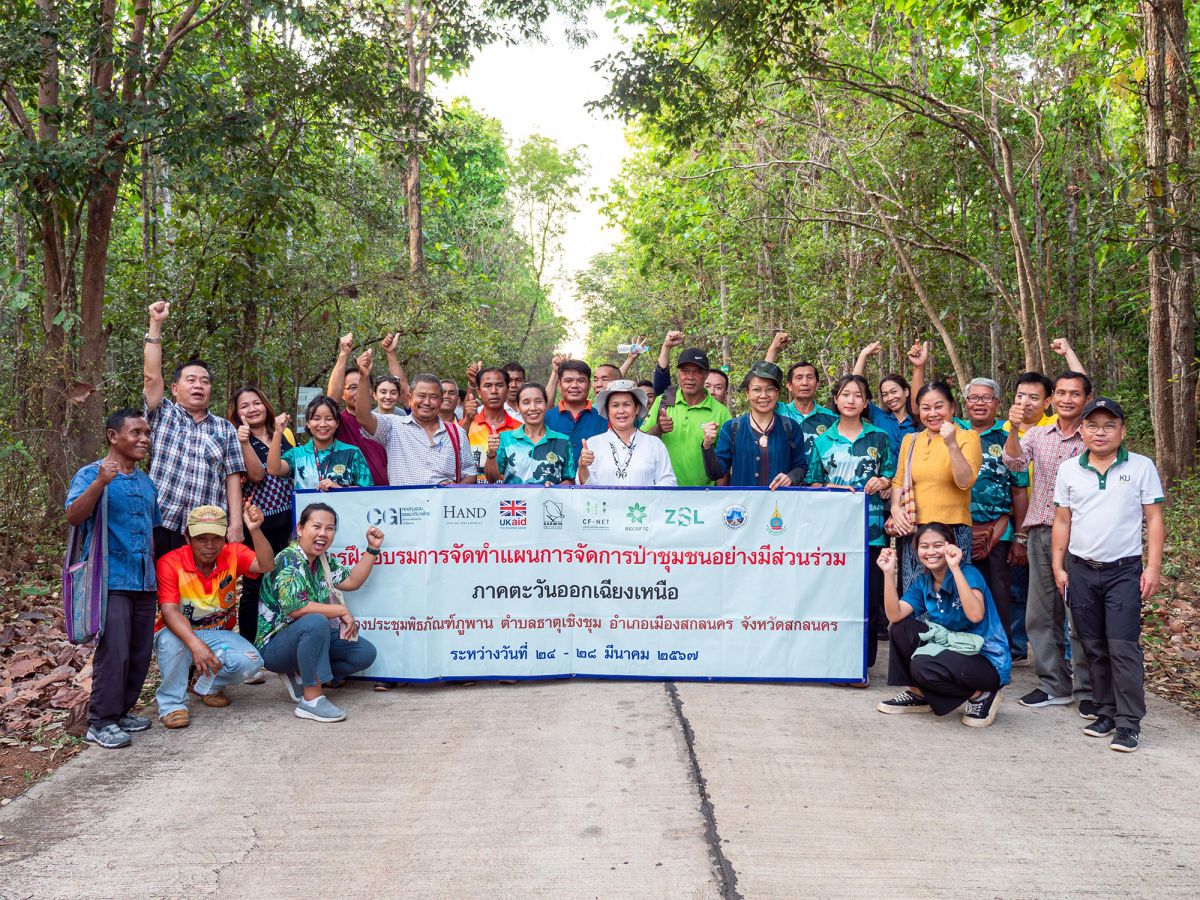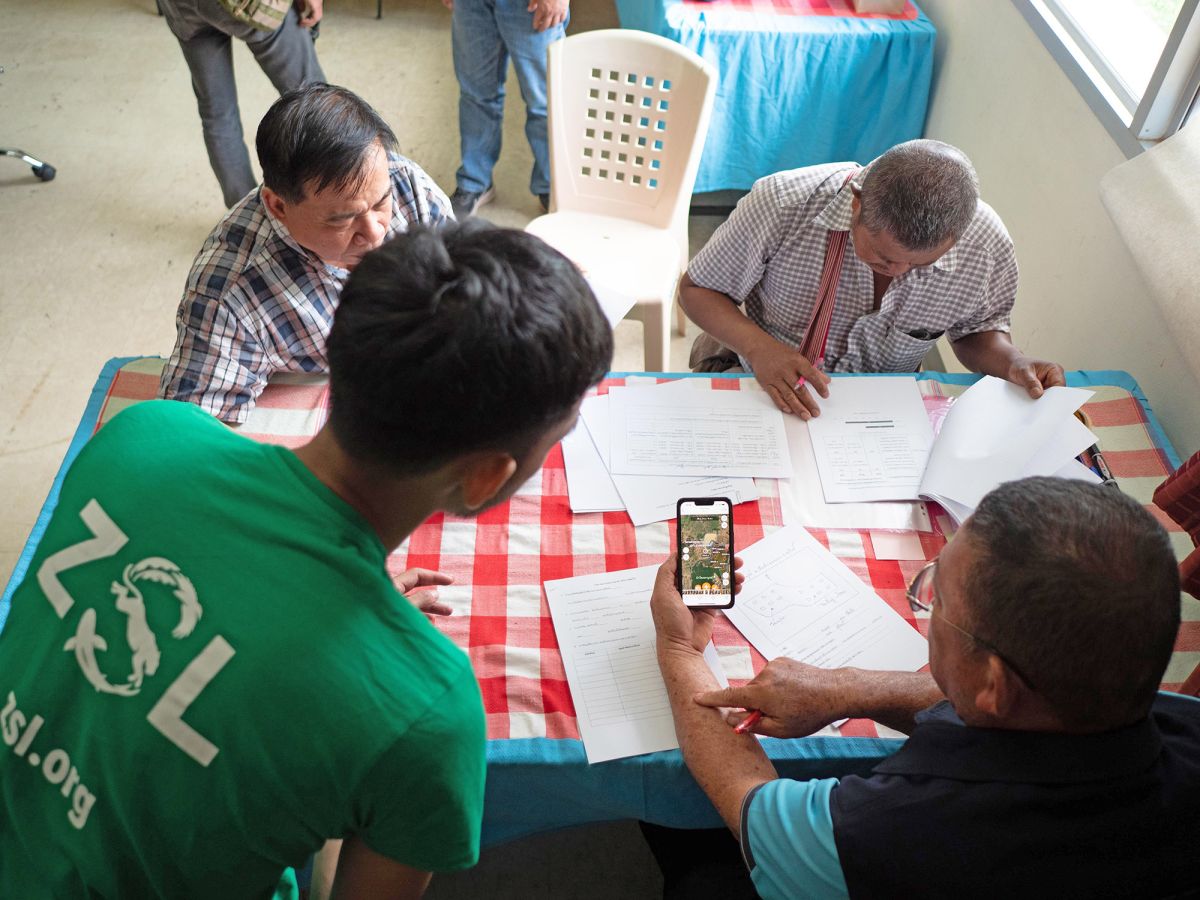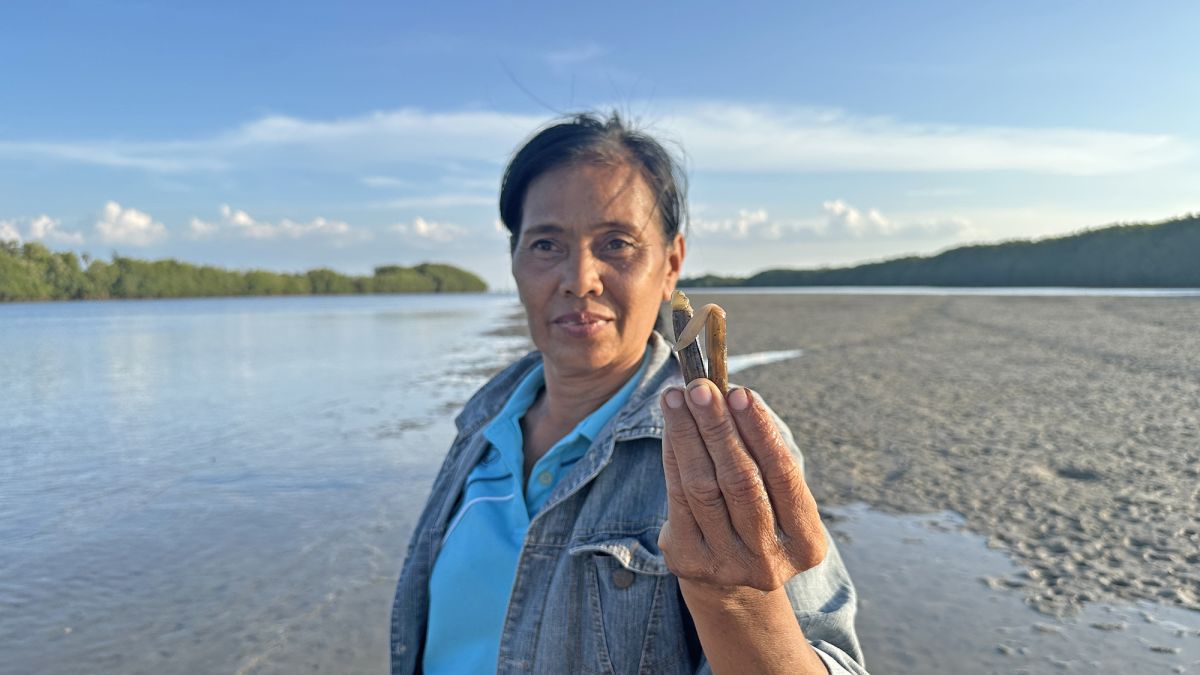Citizens’ Forest Masters: Empowered communities strengthen biodiversity and forest management

Thailand is one of the world’s most biodiverse countries, supporting over 15,000 plant species and around the same number of animal species. Its forests are biodiversity hotspots. Many of them are community forests that local villagers have managed for generations. These forests are often in close proximity to protected areas and contribute to habitat connectivity. However, despite their integral role, not much attention has been paid to the potential of community forests to conserve biodiversity and increase economic benefits for local communities.
Addressing this gap is important. As the intensifying climate crisis threatens lives and ecosystems across the world, it is essential that the world’s forests and biodiversity be protected. As a signatory to the Kunming-Montreal Global Biodiversity Framework, Thailand has committed to protecting 30 per cent of its territory for nature by 2030. While this has been a significant step, putting the national biodiversity conservation plan into practice is not without challenges.
With vast areas of forest to cover across the country, governmental efforts alone will not suffice. This is true particularly for community forests, where biodiversity data remain lacking. While local communities have a wealth of knowledge on the benefits of flora and fauna, their potential as biodiversity data collectors and biodiversity managers has not been adequately explored. The Citizens’ Forest Master (CF Master) capacity development initiative is trying to address this.
The CF Master journey
The CF Master capacity development initiative was developed and implemented by RECOFTC in partnership with the Zoological Society of London (ZSL), Thailand. The goal has been to support communities in their efforts to strengthen biodiversity and forest management.
A series of workshops were conducted as part of a capacity development process for local communities. These focused on the importance of biodiversity-integrated community forest management. The training increased members’ capacities to understand and use scientific tools and methods for biodiversity data collection and assessment. The CF Master trainings were offered to community members and locals identified as high potential.
The trained CF Masters are now incorporating collected data into their community forest management plans. Their capacities were built through a series of workshops that consisted of three main components: understanding community forests’ ecological and socio-economic contexts and identifying potential challenges; collecting biodiversity data and assessing forest resources; and developing community forest management plans that suit their contexts and needs.

“RECOFTC and ZSL were mentors for the CF Masters,” says Atcharaporn Daisai, project coordinator at RECOFTC Thailand. “We put emphasis on learning through hands-on experience, so the CF Masters’ leadership and active participation were essential to the process.”
The CF Masters are now leading their communities to conduct forest inventories. They are assessing the status of and risks to their forest resources based on the data, and developing climate-ready, context-appropriate community forest management plans. “The CF Masters have become change agents,” Daisai says.
Fostering social inclusion and good governance in forest management
The CF Master workshops have helped empower 51 local people from 27 community forests in 10 provinces across Thailand, 30 per cent of whom are women, youth and people from ethnic communities.
The Citizens’ Forest Network (CF-NET) played a key role in seeking suitable candidates for the CF Master initiative. Since it was first initiated by RECOFTC and partners in 2018, this informal network of civil society and community forest members has been strengthening community roles in forest management and collaboration with the government. Some CF-NET members have become CF Masters themselves or helped find prospects to join the initiative, including individuals from historically marginalized groups.
While every social group depends on forest resources, women, youth, ethnic minorities and Indigenous Peoples are often excluded from decision-making in forest management and utilization. Their unique knowledge and expertise to enhance community forest management practices also tend to be overlooked. To ensure inclusive and equitable forest management, we need to create opportunities and platforms for them to participate in decision-making alongside other groups.

Kemjira Chumpanya, a CF Master from Sakon Nakhon province, is advocating for greater women’s participation in forest management. Pointing towards women’s knowledge of biological resources, she says, “What kind of tree bark yields which shade of indigo and how can it be utilized for dyeing? Knowledge like this, which can economically benefit our communities, is accumulated and shared by women.” She provides the example of the signature indigo fabric from Don Koi community forest.
“But women have responsibilities such as household and family duties. We have limited opportunity to contribute to community forest management planning,” she says, pointing towards the need to work together within a network such as the CF-NET to bring more women to the forefront of forest management and biodiversity conservation.
Scaling CF Master impacts across Thailand
Positive impacts from 27 target community forest management plans are coming into fruition. However, Thailand has over 11,000 Royal Forest Department (RFD)-registered community forests spanning over 960,000 hectares, not to mention other community forests that have yet to become formally recognized.
To replicate success in other community forests, RECOFTC and ZSL are developing a community forest management planning manual. Building on the RFD’s framework for community forest management plans, the manual will present practical steps and tools, including forms for biodiversity data collection. The information and guidance presented will be comprehensive, enabling communities to independently collect necessary data and improve their community forest management plans as needed.

The community forest management planning manual will be further refined and tested in collaboration with RFD and other relevant organizations. By involving multi-sectoral stakeholders, we can improve effectiveness of the tools and methods before finalizing the manual for wider application in Thailand.
Expanding economic and ecological opportunities with open community forest data
Beyond developing community forest management plans, we are working on processing the collected data to be made available publicly. Through open community forest data, RECOFTC aims to increase public interest in community forests and motivate them to support communities for the common good.

We are working with our partner ChangeFusion to upgrade the Citizens’ Forest database website thaicfnet.org (link in Thai) by incorporating the environmental, social and governance (ESG) reporting feature. The updated website will show quantitative and qualitative data, including biodiversity data from community forests, that are of interest to the private sector.
With data on each community forest’s prominent resources displayed, it could encourage businesses to support these communities through goods purchase or collaboration for product development and marketing. Open data can also create an opportunity to attract new flows of finance to community forests.
In 2025, we will launch a new online crowdfunding initiative for individuals and businesses to fund forest management activities based on each community’s plan. Community forest sponsors will be able to receive impact data on the community forests in the form of ESG reports on thaicfnet.org. Warangkana Rattanarat, country director of RECOFTC Thailand, notes, “We believe this reporting will build transparency and boost trust from corporates, leading to more donations for communities.”
“Although some community forests have developed their forest management plans, they don’t always have sufficient money to implement the activities,” Rattanarat explains. “By developing community capacities to collect data and ensuring they are connected to sponsors with data that match their interests, we can help secure funds for their community forest management.”
In the longer term, biodiversity data collected by community forests can complement data on forests in Thailand. With evidence of community forests’ importance for biodiversity conservation and healthy ecosystems, we hope they will lead to opportunities for community forests to become recognized under ‘other effective area-based conservation measures’ (OECMs) or gain more support in the future, aligning with Thailand’s goal to achieve the 30x30 target.
Watch our video on the CF Master initiative here.
###
Nitchanun Tantapong is communication officer at RECOFTC Thailand.
The Citizens’ Forest Master capacity development initiative is part of the project, ‘Strengthening capacities for biodiversity management’, funded by the UK Government through the Darwin Initiative.
The Citizens’ Forest Network initiative receives financial support from Thai CG Fund by HAND Social Enterprise.
For more information, please visit Strengthening capacities for biodiversity management in Thailand’s community forests project page and explore the Thai Citizens' Forest database. (links in Thai)
RECOFTC’s work is made possible with the support of the Swiss Agency for Development and Cooperation and the Government of Sweden.

